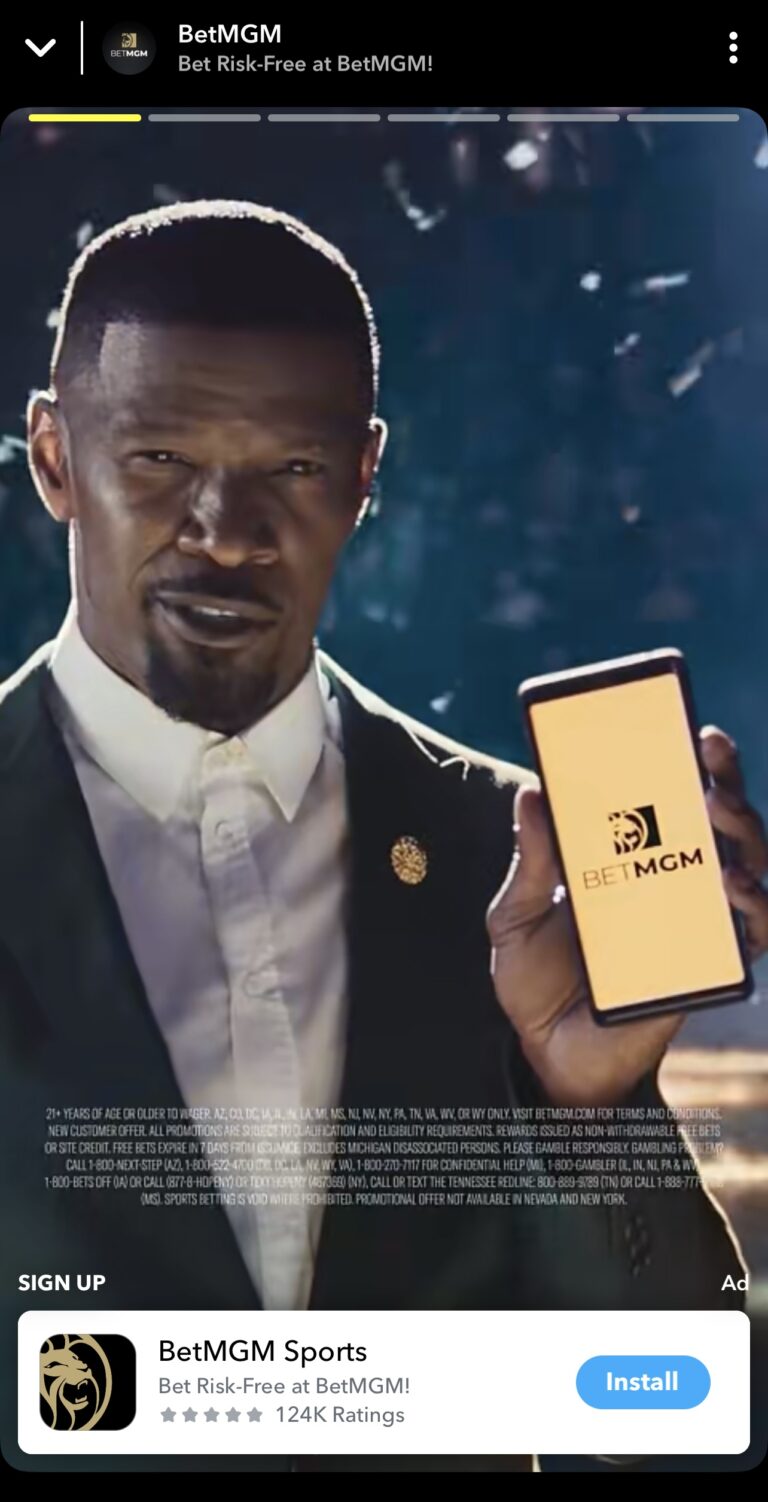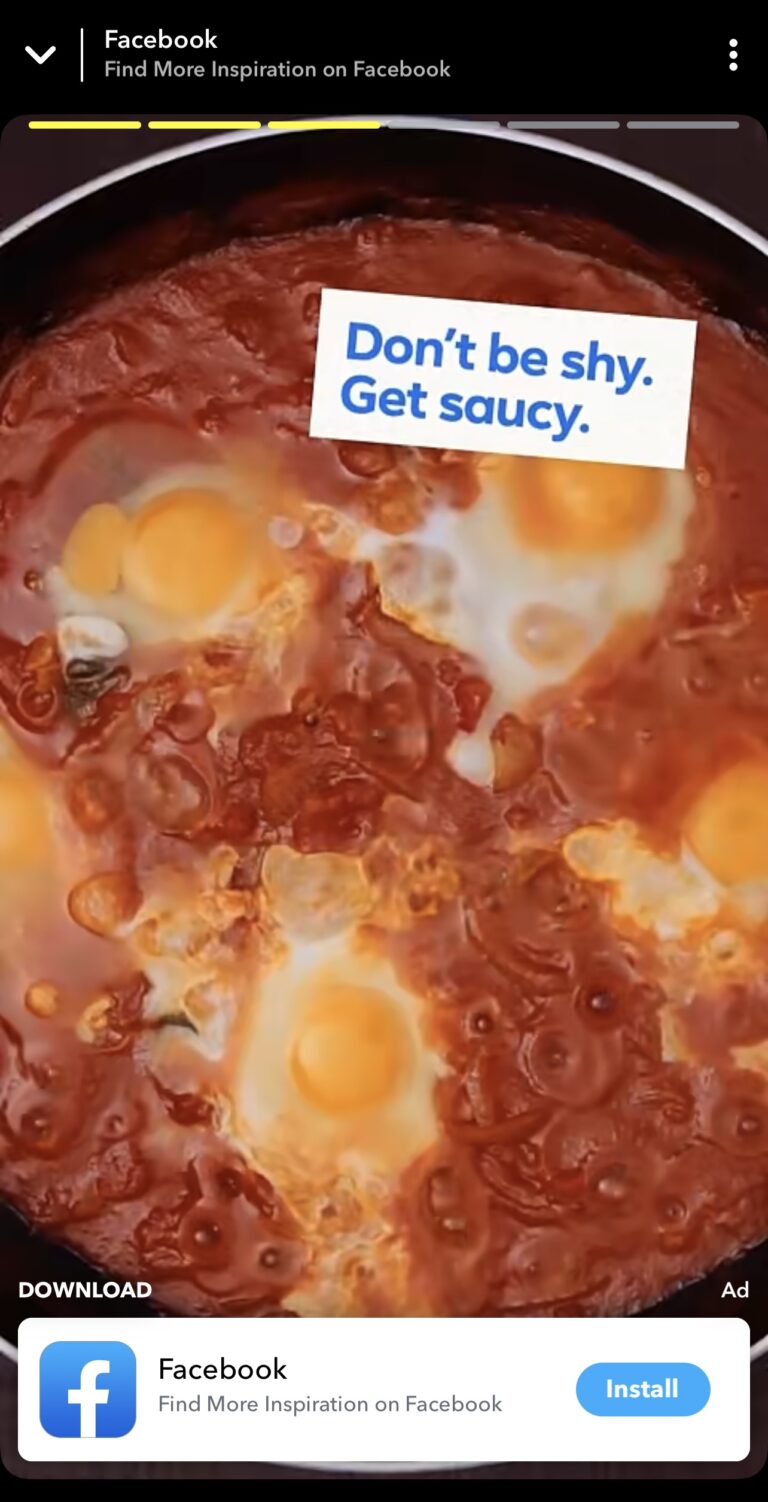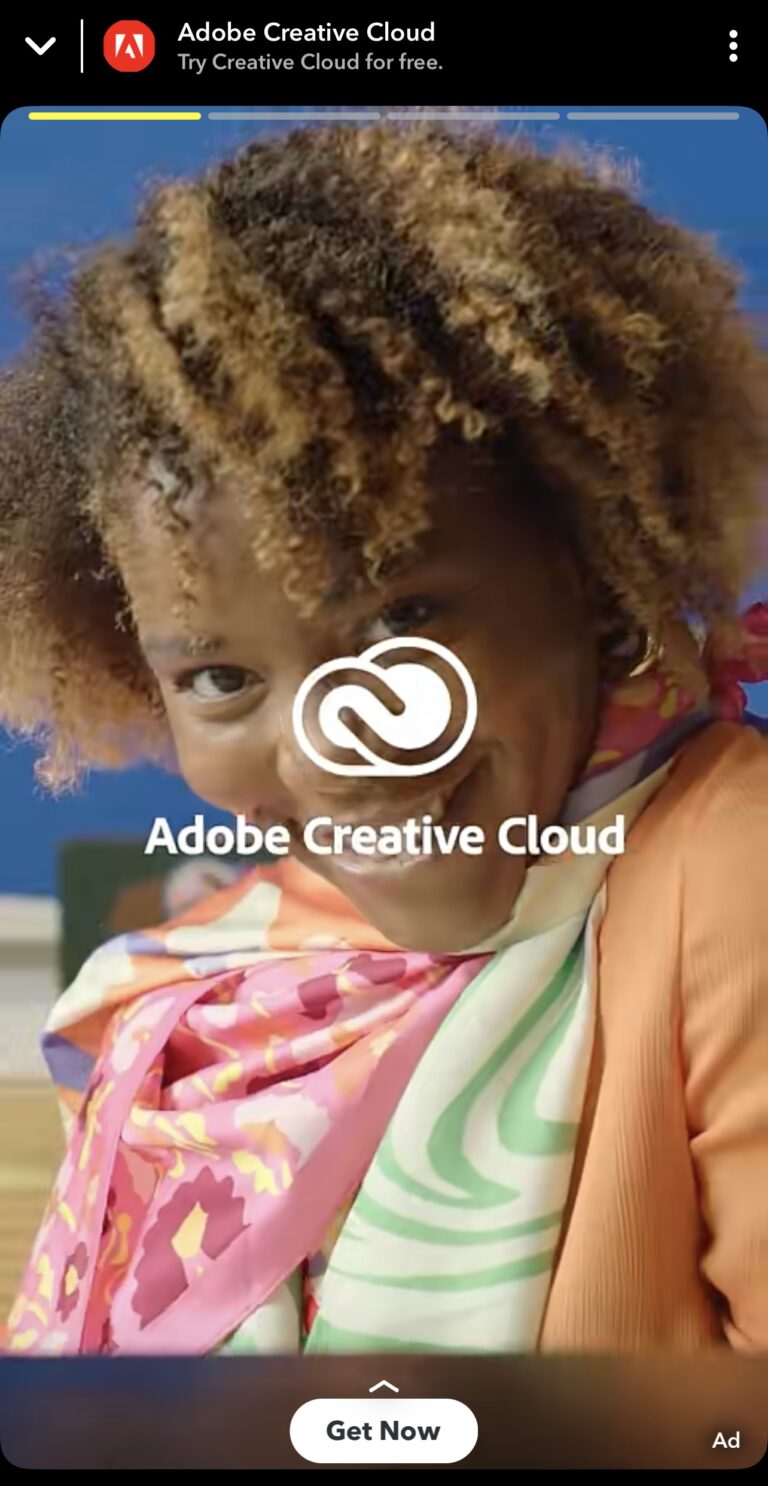Social media marketing is all about location.
If your target audience is on a platform, then you should be too. And if you’re going after a younger demographic that means Snapchat.
Snapchat is the sixth largest social media network, it’s also one of the most misunderstood by marketers.
So, if you’re panicking right now about missing the boat on this platform, you’re not alone and you’re not old – you just need a quick primer.
In this guide to Snapchat marketing, we are going to give you an overview of this multimedia messaging platform, explain who’s using it, and give you the information you need for adding it to your marketing strategy.
What Is Snapchat And How Does It Work?
Snapchat is a smartphone app-based social media platform.
Sometimes referred to as “SC” or simply “Snap,” it was initially designed with a focus on private, person-to-person sharing.
It sought to create a natural interaction flow, with shared images, videos, and messages that are only available for a limited amount of time (up to 10 seconds after viewing), after which they are automatically deleted.
Over time, the app’s developers began adding more features.
They still allow private multimedia messaging, but this is now supplemented with features like live video chat, chronological stories, and Bitmoji avatars. Users can also apply filters and use AR lenses to add animations and effects.
Okay, you may be saying, this sounds like a fun app, but what can it do for me as a marketer? And more importantly, what can it do for my brand?
Why You Should Be Using Snapchat For Marketing
Successful marketers take advantage of every opportunity to reach potential targets that present themselves – and Snapchat offers a lot of opportunities.
As of October 2022, it had more than 363 million active daily users, more than 82% of whom are 34 or younger. The most active users are 13-year-olds.
That means if your brand is going after Millennials or Gen Z, you need a presence on the app.
It may not have the sheer user volume of Facebook or YouTube, but according to Snapchat’s own data, the average user snaps between 20 and 40 times and spends at least 30 minutes on the app per day. Those are engagement numbers other sites would kill for.
And not only does Snapchat offer incredible user engagement, but it’s also a territory that is largely untapped by marketers.
There are marketers on the platform, but unlike sites like Facebook and Twitter, where commercial presence is ubiquitous, many brands have not yet established a presence on Snapchat.
This presents a great opportunity for you.
Snapchat marketing also tends to feel more authentic.
By showing followers what’s happening right now, rather than using a digitally modified, airbrushed, and perfect-looking piece of marketing collateral, you’re showing your business as it really is. People love that.
By now, it should be clear why you should add Snapchat to your marketing mix, but now comes the hard part: how do you do that?
We’ll get into that in just a bit, but when you have time, you should first check out our podcast on how to use Snapchat in your marketing campaigns.
Now, let’s take a closer look at just how to use Snapchat.
How Does Snapchat Work?
If your social media experience is primarily from using Facebook, Instagram, and Twitter, you may find Snapchat a bit frustrating at first.
For one thing, its design is fairly unique. Actions are controlled by unlabeled icons, and swiping right or left takes you to a different part of the app.
And whereas other platforms are friendly to pre-developed content, Snapchat isn’t.
Instead, you’ll need to create videos or photos (messages known as “Snaps”) or Snapchat stories in the app in real-time.
There is a bit of a learning curve, but with a little patience, you’ll soon master it and be snapping like a pro.
How To Take A Snapchat Picture Or Video
After you’ve created an account and opened the app for the first time, you’ll be faced with an ordinary back-facing camera.
Play around with this to discover the functionality it provides, including turning the flash on and off, reversing the camera, and putting the camera into night mode.
To take a picture, simply press the circle button at the bottom. To take a video, press and hold it.
Next, you can edit your Snap with text, filters, stickers, and links (to your homepage, or a special offer page, for example). You’ll also be able to adjust how long the content will last for the viewer.
Once you’re ready to send the video or image, you can select who receives it, or if you want to add it to your Snapchat story – but we’ll cover that in the next section.
That’s it! Congratulations, you’ve just made your first Snapchat post.
Create A Snapchat Story
Just like Facebook and Instagram stories, Snapchat stories are collections of videos and images that disappear after 24 hours. They collect your Snaps chronologically, which allows you to create a narrative around your brand.
To make yours impactful, use original (i.e., not previously used) Snaps to create a story arc.
You can determine who sees these under Settings.
By default, they will only be viewable by your friends – but as a brand, you should change this to “Everyone” to improve your exposure and visibility.
Outlining Your Snapchat Marketing Strategy
If you’re trying to make an impression – and you are – just slapping together a profile and uploading the occasional video isn’t going to cut it.
You need a well-thought-out strategy that will speak to your audience in a way that resonates and generate real results.
But before you can generate results, you need to know what you’re hoping to achieve – and write out your plan to make it happen.
First, consider your goals. Do you want to use Snapchat to:
- Build awareness?
- Expand your customer base?
- Re-engage cold prospects or past customers?
- Generate a buzz around a new product?
Once you’ve decided what you want to achieve from this platform, it’s time to develop your strategy.
Decide who you want to reach and what action you want them to take, then decide what type of content will best help you achieve that.
Don’t be afraid to experiment.
And be aware that some of your approaches are going to fail. But that’s what separates successful marketers from mediocre ones: Successful marketers are always learning from failures and applying that knowledge to help them get better results.
What kind of content should you be creating? Read on – we’ve got you covered.
Types Of Marketing Content For Snapchat
Like other forms of social media, SC is all about encouraging engagement.
There are several types of posts you can employ to make this happen, including:
- Sneak peeks – If you have a new product or offering people have been clamoring for, Snapchat is a great way to build excitement. A simple image with “It’s here…” can hype up the people who have been looking forward to this release, inspire shares, and increase the conversation around your brand.
- Behind-the-scenes – People love to see how the sausage is made. Snapchat lets you provide this in an authentic, unpolished way. It helps your audience feel connected and “in the know,” while making them part of the experience.
- User-generated content – Increase your exposure by inviting your audience into your Snaps. Tie giveaways and contests into your plan and reward people who use your custom hashtag or mention your brand in their own snaps.
- Interactivity – Create activities your followers can take part in, like asking your audience to send you Snaps of them using your product or interacting with you in another way. For example, you may ask them to fill in the blank in “I use my [your product name] to _________.” Let them know the best answers will be featured in your story and/or receive a prize.
- Testimonials – Have a superfan who really loves your business? Ask them to film a short video explaining why, and then share this with your audience.
- Coupons or QR codes – Give your audience an incentive for checking out your snaps. Include a digital coupon or QR code that redirects to an exclusive offer page.
Snapchat Advertising
So far, we’ve only talked about ways to use SC for organic marketing, but the app also offers paid options for varying price ranges.
If you have the marketing budget, you can buy advertising that goes directly into an audience’s feed, or purchase ads in the Discover section.
You can also sponsor a Lens as a way to create user engagement and help bring your brand to life.
On the other hand, if you don’t have access to a big marketing budget, you can use Snapchat On-Demand Geofilters, which use custom artwork to promote your brand, location, offerings, or event.
Snapchat Advertising Examples
 Screenshot from Snapchat app, December 2022
Screenshot from Snapchat app, December 2022
 Screenshot from Snapchat app, December 2022
Screenshot from Snapchat app, December 2022
 Screenshot from Snapchat app, December 2022
Screenshot from Snapchat app, December 2022
 Screenshot from Snapchat app, December 2022
Screenshot from Snapchat app, December 2022Snapchat Marketing Best Practices
Now that you know how Snapchat works, how to post content, and how to develop your strategy, let’s look at some of the best practices to help you maximize your impact:
- Let people know you’re on Snapchat – If you’re just getting into SC, mention it and solicit follows on your other social channels.
- Optimize your profile – Choose a username that suits your brand. And be sure to include a URL to your site.
- Keep it light – People are on SC for entertainment, which means your content should be fun and enjoyable.
- Showcase your brand and/or products – It should be immediately clear to anyone viewing your Snaps what you’re selling.
- Interact with other users – If you want engagement, you have to engage with others. Seek out collaboration opportunities, respond to Snaps and follow other Snapchatters.
- Don’t be overly salesy – Despite the last point, you have to walk a thin line between being informational and hard-selling. Snapchat is generally not a good platform for high-pressure sales tactics.
- Post regularly – Consistent posting is essential to building your following and expanding your exposure.
- Try something new – Don’t be afraid to take a risk and try something different. In the worst-case scenario, it’s gone in 24 hours.
Let’s Get Snapping
Snapchat is a fun and effective platform for marketing, but many marketers are put off by its difference from other, more comfortable social media sites. But their loss is your gain.
Snapchatters have $4.4 trillion in spending power and they’re largely from a generation that is not only comfortable with online shopping but prefers it.
Hopefully, this guide has encouraged you to make a start, decide on your strategy, and get snapping.
More resources:
Featured Image: Marketa Kuchynkova/Shutterstock
 seolounge
seolounge